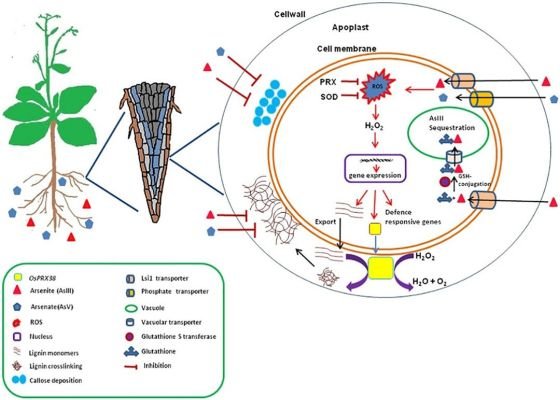Arsenic accumulation in rice grains is one of the serious agricultural issues in India. To address this, researchers at Lucknow- based CSIR-National Botanical Research Institute have developed transgenic rice by inserting a novel fungal gene, which results in reduced arsenic accumulation in rice grain.
The research team led by Dr.Debasis Chakarabarty cloned Arsenic methyltransferase (WaarsM) gene from a soil fungus, Westerdykell aaurantiaca, and have inserted the same into the rice genome with the help of Agrobacterium tumefaciens, a soil bacterium which has natural ability to alter the plant’s genetic makeup.
 The newly developed transgenic rice along with normal rice was then treated with arsenic. Comparison of transgenic and non-transgenic rice showed that transgenic plants accumulated less arsenic in root as well as shoot as compared to non-transgenic lines.
The newly developed transgenic rice along with normal rice was then treated with arsenic. Comparison of transgenic and non-transgenic rice showed that transgenic plants accumulated less arsenic in root as well as shoot as compared to non-transgenic lines.
Researchers found that the resulting transgenic plant acquired the potential for methylating inorganic arsenic to a variety of harmless organic species, including volatile arsenicals.
This could be potential strategy for developing transgenic rice capable of low arsenic accumulation not only in grain but also in straw and feed which are used for livestock.
Now the team is focusing on food safety test and field trials, subject to regulatory approvals. In addition, researchers are also looking for gaps in arsenic metabolism in rice which will ultimately lead to understand arsenic uptake and metabolism in rice.
As large number of people are affected by arsenic toxicity, it is imperative to develop rice with lesser arsenic content and high yield.
In this background, biotechnological methods such as modulating the expression of Arsenic metabolism-related genes in rice will be a fruitful and practical approach to decrease arsenic accumulation
Source- India Science Wire edited by Clean Future Team






